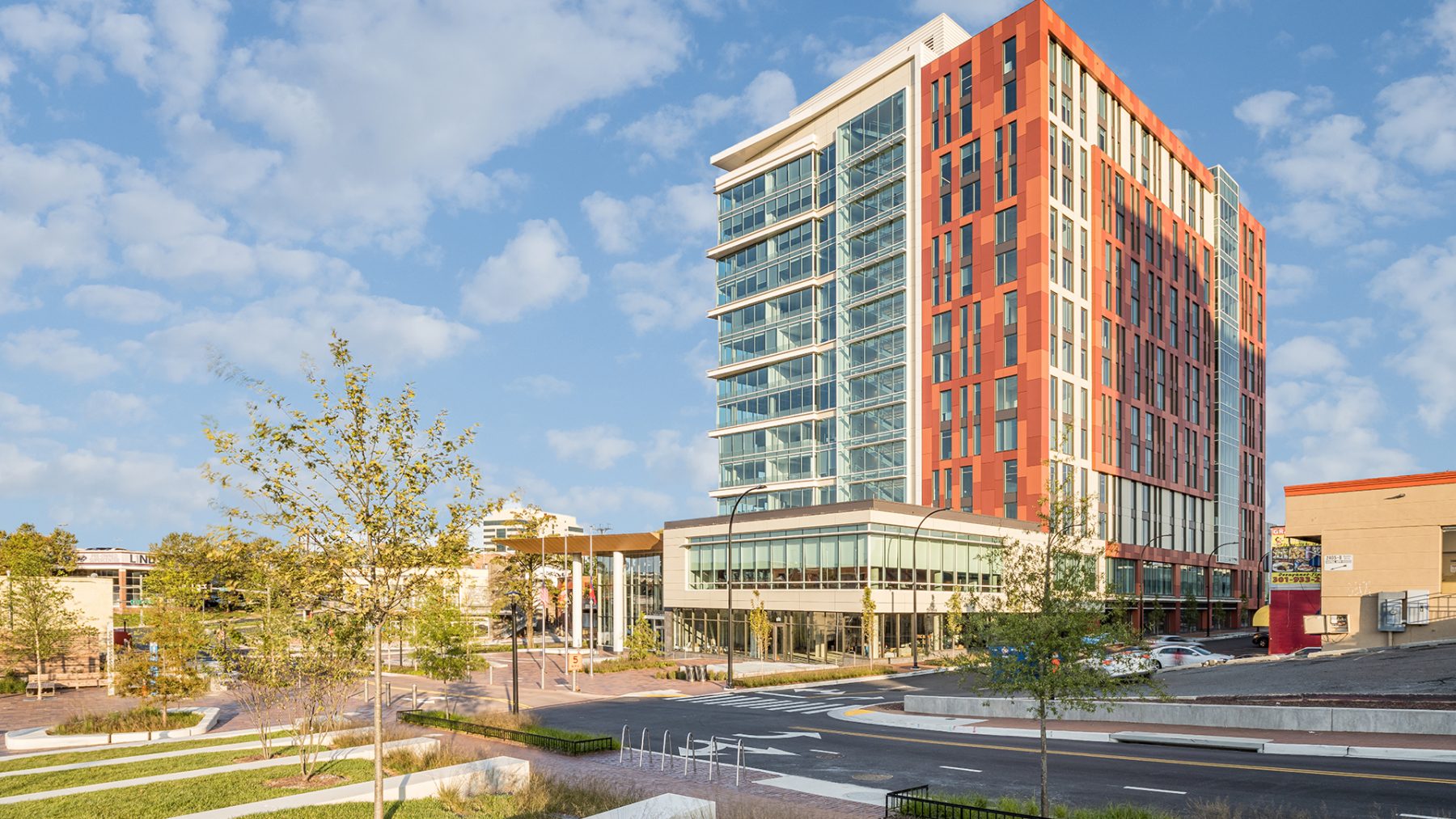
Friendship Heights Sector Plan, Georgia Avenue Corridor Master Plan, Parking Lot Design Guidelines and Planning Academy among new plans and projects approved by County Council
WHEATON, MD – The Montgomery County Planning Department, part of The Maryland-National Capital Park and Planning Commission (M-NCPPC), has secured the Montgomery County Council’s approval to proceed with its ambitious work program for fiscal year 2025 (FY25), which begins on July 1, 2024. The County Council approved Montgomery Planning’s $25.5 million budget for FY25 at its meeting on May 23, 2024. These funds support the work program for the department and represent a 5% increase compared to the FY24 Operating Budget.
Montgomery Planning received new funding for the Georgia Avenue Corridor Master Plan, the Friendship Heights Sector Plan, the Parking Lot Design Guidelines, the creation of a Planning Academy program for the public, and three regulatory review staff positions. The Bethesda Downtown Plan Minor Master Plan Amendment was also added to the department’s work program without dedicated funding since the focus is to only review the development cap from the 2017 plan.
“We are looking forward to our exciting FY25 work program,” said Montgomery Planning Director Jason K. Sartori. “Our focus is on engaging community members with our ongoing master plans and projects as well as our three new plans. This work will advance our goals of equity and social justice, environmental resilience, and economic competitiveness for the county, all of which align with the recommendations of our General Plan, Thrive Montgomery 2050.”
Highlights of Montgomery Planning’s major new plans and projects in FY25 include the following plans and projects. Staff will begin work on the new FY25 work program items starting this summer.
Bethesda Downtown Minor Master Plan Amendment – The 2017 Bethesda Downtown Sector Plan has a 20-year vision to help downtown Bethesda continue to be a thriving urban center and one of the county’s most desirable communities. The 2017 Sector Plan included a Bethesda Overlay Zone (BOZ), which set a 32.4-million-square-foot cap on total development in downtown Bethesda to ensure public infrastructure like parks, schools, and transportation could accommodate new development. The sector plan also included a provision to reassess implementation of its recommendations once total existing and approved development reached 30.4 million square feet, which it did in the fall of 2023. Therefore, the Montgomery County Council authorized Montgomery Planning to develop a minor master plan amendment (MMPA) to the 2017 Sector Plan. The MMPA will not re-open the entire 2017 Sector Plan. The existing zoning, parks, transportation, and other recommendations will remain unchanged while staff explore how better to implement those recommendations. The current schedule anticipates a Planning Board Public Hearing later in the fall and County Council review in early 2025.
Friendship Heights Sector Plan – Once a regional luxury retail destination, Friendship Heights is acutely feeling the impacts of the post-COVID economy on both sides of the Maryland-DC border. The Friendship Heights Sector Plan will engage community stakeholders to update the 1998 Friendship Heights CBD (Central Business District) Sector Plan to envision the next chapter of this unique cross-jurisdictional urban community. To build on the momentum and findings of the Friendship Heights Urban Design Study and the DC Office of Planning’s Wisconsin Avenue Planning Framework, the sector plan will assess and address the area’s economy, demographics, land use, parks and open space, transportation, the environment and more.
Georgia Avenue Corridor Master Plan – With planned growth in areas around the Wheaton and Glenmont Metrorail stations, the Georgia Avenue Corridor Plan seeks to enhance community equity and further economic competitiveness along Georgia Avenue. The plan will evaluate land use along segments of Georgia Avenue, identify opportunities to further environmental resilience in the corridor, and celebrate connections among parks and stream valleys. Further, the plan will seek to improve multimodal safety along the Georgia Avenue corridor and build on the analysis and findings of the 2008 Georgia Avenue Study, 2013 Countywide Transit Corridors Functional Master Plan, Thrive Montgomery 2050, and the Glenmont Corridors Opportunity Study to develop comprehensive master plan recommendations.
Parking Lot Design Guidelines – This effort will develop parking lot design standards to ensure new or rebuilt lots and garages prioritize safety for pedestrians, while providing convenient, accessible parking for people with disabilities and for people who use bikes and micromobility devices like e-scooters. The project would guide the county to transform hazardous parking lots into multimodal spaces with pedestrian pathways, better lighting, and fewer pedestrian conflicts. It will also clarify parking lot design and provide a user-friendly framework for developers, engineers, planning and transportation staff, policymakers, and community members to make informed decisions regarding safety features, lot layout, services, amenities, and green infrastructure. Montgomery Planning has been awarded a federal Safe Streets for All planning grant to help fund this project.
Planning Academy – One of the 22 recommendations from the 2023 Development Review Process Workgroup, the creation of a Planning Academy will provide education on community participation during the planning process for residents. As directed by the County Council, the focus will be on regions of the county and population groups historically under-represented in the zoning, planning, and permitting processes. The program will feature a combination of online learning modules and in-person instruction. Montgomery Planning will coordinate with county agencies related to the curriculum.
Staff will continue to work on the master plans and projects that are currently in progress, including:
- 2024-2028 Update to the Growth and Infrastructure Policy
- Attainable Housing Strategies Initiative
- Clarksburg Gateway Sector Plan
- Damascus Placemaking Festival
- Eastern Silver Spring Communities Plan
- Germantown Employment Area Study
- Glenmont Corridors Opportunity Study
- Incentive Zoning Update
- Master Plans of Highways and Transitways Technical Update
- University Boulevard Corridor Plan
- Wheaton Placemaking